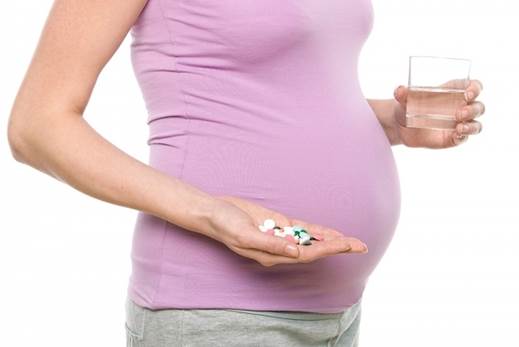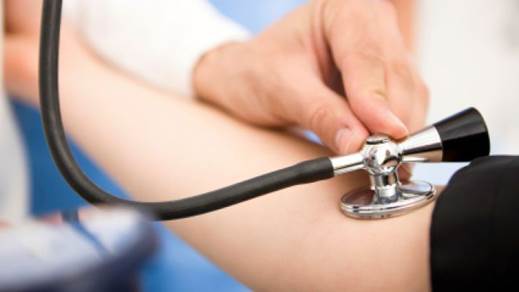Abstinences in pregnancy are hard to do but,
they can bring so many benefits for both mother and child.
According to long-term researches, it’s
proved that there’re many things that women should and shouldn’t do in
pregnancy. That abstaining is hard but, it can bring so many benefits for both
mother and children.
Do not eat Junk food

Junk
food is low-nutrient-content but, it has many harmful substances.
Junk food is low-nutrient-content but, it
has many harmful substances, such as sugar, fats and salt. For example, fried
chips, pizza, confections, chips, snacks, soft drinks, energy drinks… Using it
for a long period of time can lead you to addiction, obesity, cholesterol
increase and other implications.
According to researches published on The
FASEB Journal on March 3rd, 2013, pregnant women who eat Junk foods
will have their body changed, brain increase, children’s taste change and have
children who are easily infected with metabolic diseases.
When born, children will be addicted to
foods that are similar to what their mother is addicted to and have higher rate
of addicting to stimulants like weed, drug than others who were born by mothers
who had balanced diet.
Do not drink coffee

Pregnant
women who have 1 cup of coffee a day can reduce the weight of newborns.
A research of the Norwegian Institute of
Public Health was carried out on 60.000 women. The result is that pregnant
women who have 1 cup of coffee a day can reduce the weight of newborns. So,
it’s recommended that women shouldn’t drink coffee.
A cup of coffee contains 140mg caffeine. So
if you absorb 200-300mg caffeine a day, you’ll have the risk of Small for
gestational age (SGA) increased around 27%-62%. If pregnant women absorb 100mg
caffeine a day, their newborns will reduce to 21-28kg while they’re supposed to
have 36kg on average.
Caffeine is a factor causing fetal slow
developments. A part from caffeine, people also found that tobacco was a factor
also.

Pregnant
women shouldn’t drink too much coffee.
You should avoid alcohol, the specialists
from Cartin Uiversity (CU), Australia said that pregnant women shouldn’t drink
alcohol because if they did, their children will have much chance of Sudden
Infant Death Syndrome (SID) and other incurable diseases.
According to the research, if pregnant
women overuse alcohol, there’ll be 1 out of 6 SID infected children die. For
the result, the researchers conducted a long-term research on 77,895 women who
gave birth in the period of time around 1983-2005. It resulted that to 21,841
pregnant women who were addicted to alcohol, there were 171 children who have
SID were born.
Do not have epilepsy medicines
Based on the latest researches relating to
bad effects of epilepsy, in the late January, 2013, the American Academy of
Neurology (AAN) recommended that pregnant women shouldn’t take the epilepsy
medicine called Valproate (trade name: Depakote) because it can increase the
risk of autism and other issues relating to fetal physical and intellectual
developments.

Pregnant
women shouldn’t take the epilepsy medicine called Valproate
Valproate is dedicated to treat epilepsy,
mental disorders and migraines. Pregnant women who using this medicine not only
cause birth defects, but also decrease the IQ index and the ability of learning
to their children in the future.
The recommendation of AAN is based on the
research conducted by specialists from Liverpool University, England. The research
was carried out on 500 pregnant women from 2000-2004, half of them had
epilepsy, and 34 people in the epilepsy group used drugs to treat seizures.
In the total of 415 children born by the
group of people had epilepsy, there were 19 had their nerve development
extremely slow till the age of 6; 12 had autism; 1 had Attention Deficit
Hyperactivity Disorder (ADHD) and 3 have reading trouble. Overall, if children
that are born by women who use Valproate and other drugs have the rate of slow
development increased 6-10 times as much as children who aren’t.
Especially, male newborns are 3 times as
high risk as the female ones. For that reason, it’s recommended that pregnant
women should stay away from the group of medicines, especially from the 3
followings: Carbamazepine (Tegretol), Valproate and Lamotrigine (Lamictal).
Do not overuse vitamin D
It’s recommended by specialists from Helmltz
Center for Environment Research (HCER), Martin Luther University (Germany) and
published on Allergy Magazine on February, 2013. According to HCER researches,
women who overuse those substances can increase the risk of allergy in their
children.
The researchers found that if there’s a
high level of vitamin D in pregnant women’s blood, there’d be the same in their
placentas. The research was carried out on 622 pregnant women and their
children.
The results id that women who have low
level of vitamin D in their blood, the level of vitamin in their 2-year-old
children is still low and has lower chance of allergy. Otherwise, if women have
high level of vitamin in their blood, their children will have more chances of
allergy, especially food allergy.
The foods that often cause allergy are egg
yolk, protein, milk, peanut and beans. The researchers recommend women to limit
using vitamin during pregnancy or ask for doctor’s prescriptions to take the
medicines rightly and safely.

Great
weight gaining in pregnancy can cause trouble for mother and infant.
One of the troubles is causing fetal
unstable brain developments. The result is concluded by a research conducted by
the Mother Infant Research Institute (MIRI) in America. It was carried out on
16 pregnant women.
According to the research, newborns of
obese women have genetic transmission in a different stage of pregnancy in
comparison to thin women. Women who have normal weight don’t have those kinds
of trouble.
Particularly, in development process,
there’s some unusual phenomenon in the placenta, such as the high rate of cell
death or so-called programmed cell death (apoptosis). Besides, there’s a lot of
different unusual things after the children are born; there’re even autism and
other mental disorders.
Reduce blood pressure increase in the late pregnancy
After finishing the research lasting 27
years and carried out on 750 births, the specialists from Copenhagen
University, Danish said that there were 10% of women who have gestational
hypertension. It’d be better, if the blood pressure increase moderately in the
early pregnancy because if it happens in the late one when the increase can
cause many negative effects on mothers and infants, especially to the children
in the future.

It’d
be better, if the blood pressure increase moderately in the early pregnancy.
If the blood pressure has a small increase
(especially in the 3 first months), it’ll help the labor happening more
smoothly. Otherwise, it’ll increase the risk of natal mortality and
hypertension in children.
So far, scientists, still, haven’t known
the reason of gestational hypertension. On the least situation, they just
consider about the evolution, genetic factors, especially the gene that is
transmitted from fathers to daughters, and other relating factors.
To prevent the disease, before getting
pregnant, women should have medical examination and treatment to get rid of
disease that they’re infected with, maintain an active lifestyle, sensible
eating habit, quit drinking alcohol and using stimulants, abstain from living
in harmful environments.